As President Donald Trump pushes for the closure of the U.S. Department of Education, local educators and officials are trying to calculate how the move could impact next year’s Buncombe County Schools (BCS) budget.


As President Donald Trump pushes for the closure of the U.S. Department of Education, local educators and officials are trying to calculate how the move could impact next year’s Buncombe County Schools (BCS) budget.
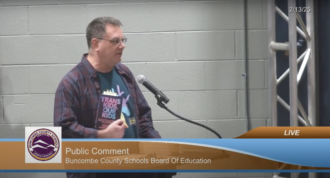
he controversy began last year when local members of the Moms for Liberty, a political organization that advocates against school curricula that mention LGBTQ rights, critical race theory and other issues, took issue with some titles available to students and educations in the 40,000 book online library.

“Based on the literature review, constituent input, local environmental factors, the current operations and academic outcomes of each school system, Prismatic does not recommend consolidation of ACS and BCS,” concluded a report from Charlotte-based education consultants Prismatic Services.

Mandated by the N.C. General Assembly in 2023, Buncombe County hired Charlotte-based Prismatic Services in March to analyze the feasibility of merging the county’s two public school districts based on finances, student enrollment, policies, procedures, student well-being, personnel, operations and facilities.
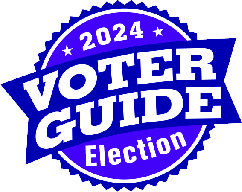
In one of the more crowded races in recent history for seats on the Buncombe County Board of Education, nine candidates are running for four seats on Western North Carolina’s largest school board.

In was a chaotic year for Western North Carolina’s largest school district in 2023-24. This November, ten candidates are vying for four seats to lead Buncombe County Schools into a future full of question marks for public education in North Carolina.
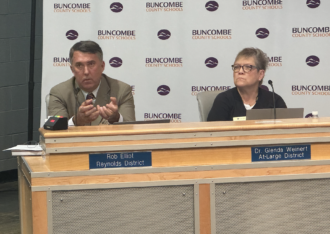
At its meeting Sept. 5, the Buncombe County Board of Education unanimously (7-0) passed interim policies that broaden the school district’s interpretation of what constitutes a complaint as defined by Title IX, a federal law passed in 1972 that bars sex discrimination in education.
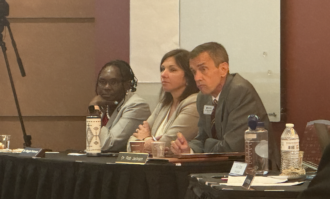
On Aug. 22, the Buncombe County Board of Commissioners called a first-of-its-kind joint meeting within the Asheville City and Buncombe County boards of education to identify the three elected bodies’ shared purpose.

“Today, North Carolina ranks 48th in the country in per-pupil funding ($4,655 below the national average and dead last when it comes to school funding effort).”
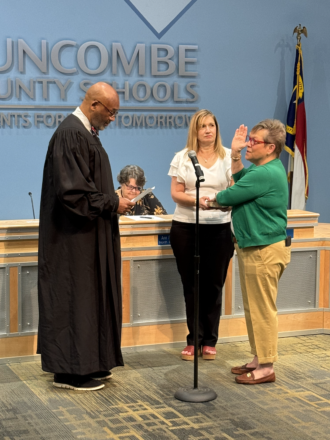
The Buncombe County Board of Education is not happy with the direction state legislators are taking in funding schools.

From child care centers to colleges, Glenda Weinert’s education experience has influenced students young and old. But it’s her business expertise and political leadership as former chair of the Buncombe County Republican Party that make her a unique addition to the Buncombe County Board of Education.
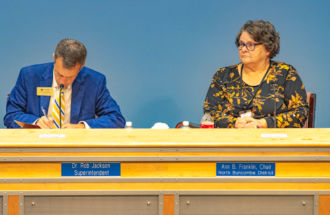
Former Buncombe County GOP Chair Glenda Weinert, who is a current member of the Buncombe County Schools Foundation, received the most votes on June 6 in the opening round of an open-ended series of votes among the six sitting members of the board.

In a statement to the board at a special called work session May 15, an emotional Simpkins said she was stepping down for “personal reasons” and because of “some changes going on.”
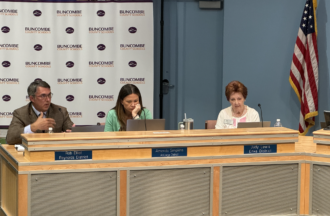
The Buncombe County Board of Education passed an increased funding request of $13.5 million from the Buncombe County Board of Commissioners at its May 2 meeting based on a “vast number of assumptions and projections,” according to BCS Chief Financial Officer Tina Thorpe.
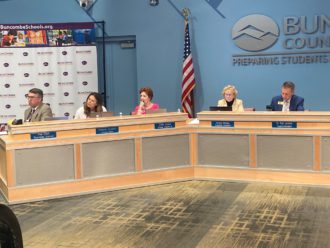
The Buncombe County Association of Educators delivered a three-pronged request to the Buncombe County Board of Education at its April 11 meeting that had the support of nearly 1,200 teachers and more than 100 community allies.

Until recently, local school districts had largely avoided the national wave of book bans. Despite some activists making noise in local school board meetings last summer, there had been no formal requests to remove books from school libraries in Asheville City or Buncombe County schools. But by November, 20 books had been challenged by a group of parents at Enka High School.

“Reading here about the new Buncombe County Schools board book ban, I might run for the board instead of the Soil and Water Conservation District in opposition and also to represent childless residents against the parental ‘rights’ dictatorship of sociobiological ideocracy.”
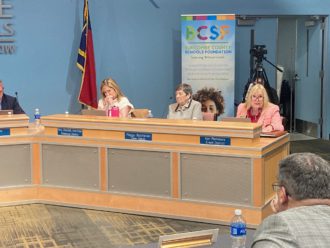
One month after banning a book from all district high schools, the Buncombe County Board of Education unanimously agreed at its March 7 meeting to keep nine others available to students at Enka High School.
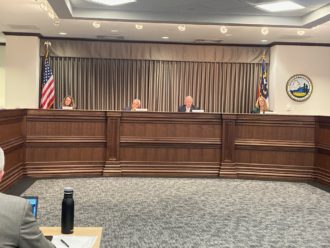
While one local public school district redraws its district lines and the other considers merging its two middle schools, Buncombe County is moving forward with a study to explore consolidation of the two districts.
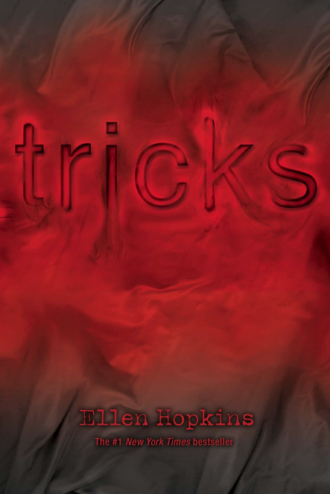
At its Feb. 8 meeting, the Buncombe County Board of Education voted unanimously to remove author Ellen Hopkins’ fictional 2009 book, Tricks. Three other books under consideration — Hopkins’ Perfect, Patricia McCormick’s Sold and Sarah Gruen’s Water for Elephants — remain on county high school library shelves, based on recommendations from the Buncombe County Schools’ Media and Technology Advisory Committee.
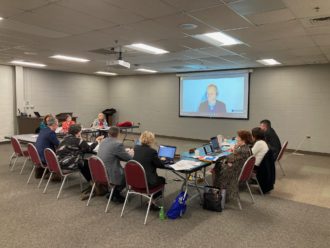
The Buncombe County Board of Education doesn’t particularly like any of its options for new voting maps, as required by a law the N.C. General Assembly passed last fall. As a result, several attendance zones might see up to 30% of its population reassigned to other districts.